Sudan-Iran relations fully restored after eight years
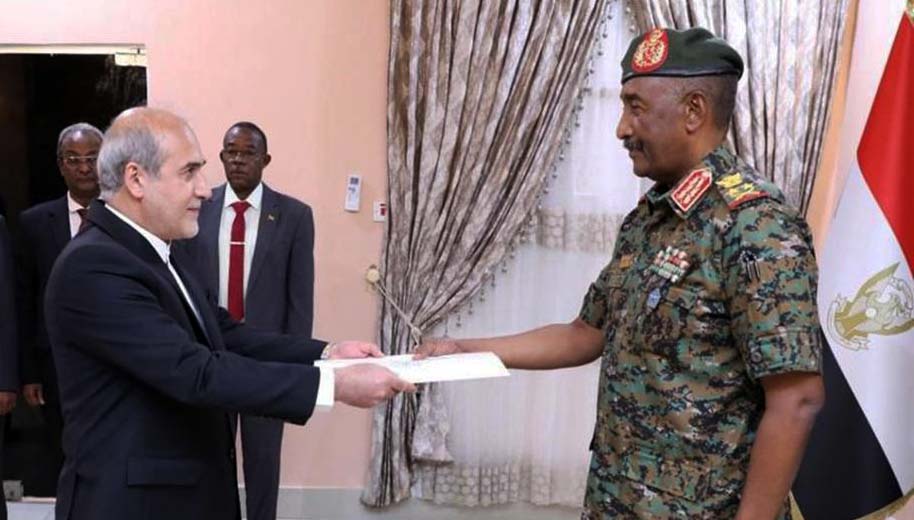
Hassan Shah Hosseini, the Ambassador of Iran to Sudan, presents his credentials to Lt Gen Abdelfattah El Burhan, Chairman of the Transitional Sovereignty Council and Commander-in-Chief of the Sudanese Armed Forces, in Port Sudan on Sunday (Photo: SUNA)
Official diplomatic relations between Sudan and Iran have been restored following an eight-year hiatus, after the new Iranian ambassador presented his credentials to the Sudanese government in Port Sudan. Hassan Shah Hosseini, who has been appointed by Teheran as Ambassador Extraordinary and Plenipotentiary to Sudan, was received by the chairperson of the Transitional Sovereignty Council, commander-in-chief of the Armed Forces, Lt Gen Abdelfattah El Burhan, at a ceremony yesterday.
In a statement following the meeting Ambassador Hosseini said that presenting his credentials comes within the framework of the common consensus between the two countries regarding the exchange of ambassadors and the promotion of bilateral relations.
Hosseini expressed his thanks and appreciation to the chairperson of the Sovereignty Council for accepting his credentials, stressing that he will do his utmost “to enhance cooperation relations between the Islamic Republic of Iran and Sudan”, adding that added that his country supports national sovereignty, unity and territorial integrity of Sudan.
Lt Gen El Burhan welcomed the new Iranian ambassador, stressing the strength of relations between Sudan and Iran, and that the ambassador’s presentation of his credentials “heralds the beginning of a new phase in the path of bilateral relations”.
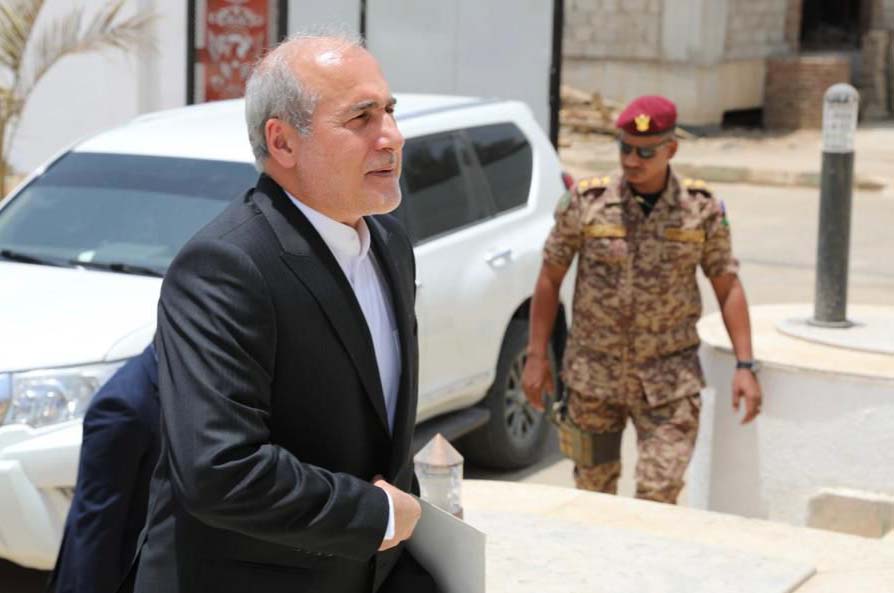
Ambassador Hosseini’s appointment to Sudan follows a February visit by Sudan’s acting Foreign Affairs Minister Ali El Sadig to Tehran, where he met with Iranian President Ebrahim Raisi.
Sudan and Iran announced their decision to restore diplomatic relations, in October 2023, marking the end of a seven-year hiatus. Two months later, Radio Dabanga reported that a SAF delegation allegedly visited Iran to purchase Iranian-made combat drones. In late January, the Rapid Support Forces (RSF) said they downed an Iranian-made Mohajer-6 drone in Khartoum state.
Red Sea
In March, both Sudan and Iran denied that an Iranian naval base would be established on the strategic Red Sea coast. The respective rebuttals from Port Sudan and Teheran followed a report by the Wall Street Journal citing “a senior Sudanese intelligence official”, who alleged that Sudan turned down overtures from Iran, which included a pledge of a warship in exchange, to establish a permanent naval base on Sudan’s Red Sea coast.
Iranian Foreign Ministry spokesman Nasser Kinani told a news conference at the time that the report was “baseless and politically motivated”. Following the appearance of the report, Sudan’s acting Minister of Foreign Affairs refuted the story as “lies” and “fabricated.”
According to the report, Sudan rejected Iran’s offer for fear of angering the USA and Israel. Iran has already supplied the Sudanese Armed Forces (SAF) with Mohajer 6 drones, which experts told Radio Dabanga have contributed to the progress the SAF made in Omdurman.
Relations
Khartoum severed ties with Iran in 2016, following the deterioration of Saudi-Iranian relations. Sudan had fostered good relations with Iran since Omar Al Bashir seized power via a coup d’état in 1989. However, relations cooled in March 2016, after Khartoum opted to support Saudi Arabia in its military campaign against Shiite Houthi insurgents in Yemen.







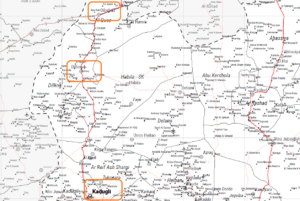
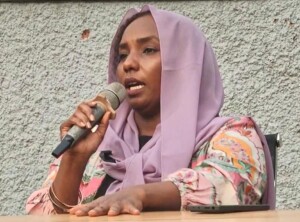
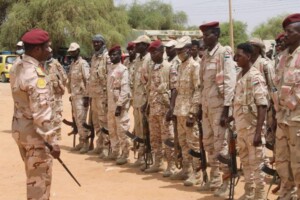

 and then
and then